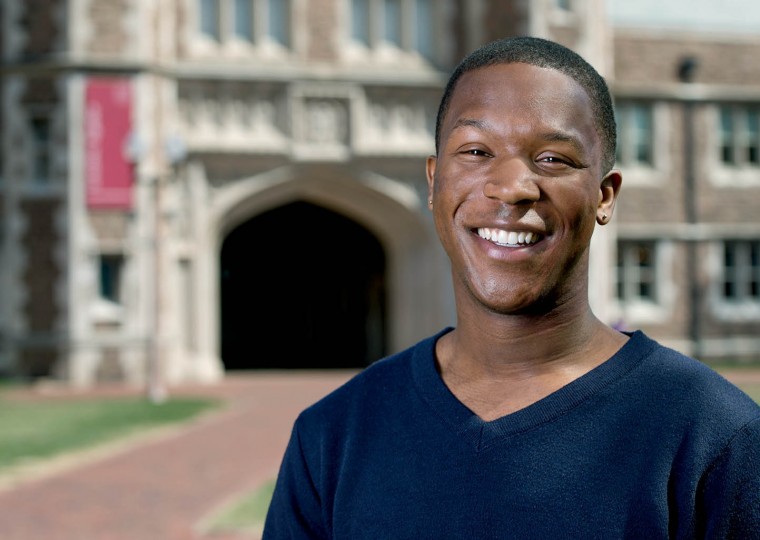When recent graduate Joshua Aiken was growing up, he moved around a lot. His father, a football coach, worked with colleges in New Mexico, Texas, Tennessee, California, Iowa and Arizona. “As the perpetual new kid in town — and often one of the few people of color — I knew what it was like to feel excluded, devalued and ignored,” Aiken says. “I became more and more aware of how certain stories and communities were pushed to the margins. Since then, I’ve been driven to work toward a more inclusive world where folks can live openly and freely.”
“I fight for human rights because that’s where I find myself best positioned to intervene in undermining oppression around the world.”
Joshua Aiken
In November 2013, Aiken was awarded a Rhodes Scholarship to study at the University of Oxford in England. He intends to earn two master’s degrees there, one in U.S. history and one in forced migration studies, examining the experience of asylum seekers and refugees.
While at Washington University, Aiken was part of the Gephardt Institute for Public Service Civic Scholars Program; co-chair of the Mosaic Project, a campus-wide diversity program; and an intern in the U.S. House of Representatives. The Ervin Scholar also served as a Humanity in Action American Fellow and was a U.S.–U.K. Fulbright Commission Summer Institute participant, all while performing slam poetry as part of WU-SLam and earning a bachelor’s degree in American culture studies and political science.
The magazine asked the scholar about what drives him.
I fight for human rights because that’s where I find myself best positioned to intervene in undermining oppression around the world. Spending time in Germany and Panama and Northern Ireland, not to mention time I’ve spent with communities in St. Louis, has made me so aware that we need people working at the grassroots and “grasstops” level in order to create substantive change.
I wish people knew that I don’t take myself too seriously. My friends would describe me as occasionally sarcastic, really invested in bad puns and willing to make fun of myself.
The secret of success might be changing the conventional definition of what it means to be successful. I’ve found this quote by gender theorist Kate Bornstein to be indicative of what I think it means to succeed: “Your life’s work begins when your great joy meets the world’s great hunger.”
